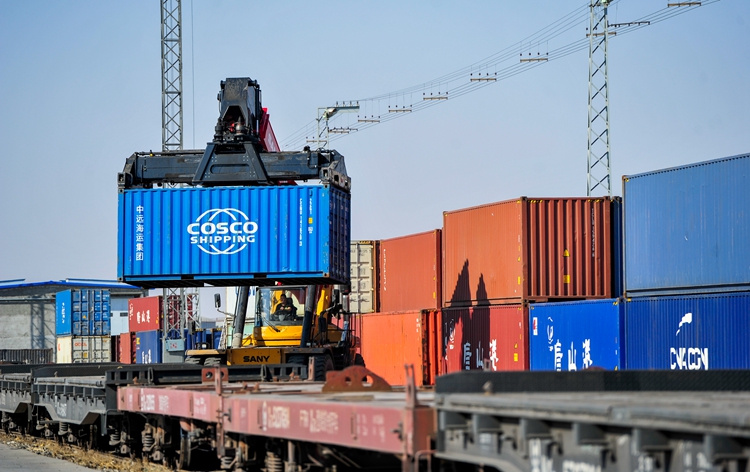A train bound for Duisburg, Germany, departed from Wuhan, capital of China's Hubei Province, on Wednesday, Emirates News Agency reported on July 11th. This is the 10,000th cumulative China-European Union (CEU) train in China this year.
According to Xinhua, this year's China-Europe liner train broke 10,000 trains 19 days earlier than last year's, Xinhua reported.
This year, the cumulative total of goods sent on the China-Europe liner train is 1.083 million TEUs, up 11 percent year-on-year.
Spain's Foreign Enterprise Daily pointed out that the impact of the China-EU liner on international trade is increasing day by day.
China's Belt and Road Initiative reportedly continues to transform intercontinental trade through the CEL service. With the 90,000th freight train (May 25) from Xi'an, Shaanxi Province to Malaszewicz, Poland, the CELS reached a new milestone.

The service highlights the growing importance of the rail network in China's foreign trade with Europe and has become a key pillar of China's trade strategy.
As of the end of May, more than 8.7 million TEUs of cargo with a value of more than US$380 billion had been sent on the China-Europe liner, according to China State Railway Group Co. The annual value of cargo transported on the China-Europe liner increased from US$8 billion to US$56.7 billion between 2016 and 2023. These figures reflect impressive developments and a significant increase in trade activity.
Since 2023, growing market demand for technologically advanced Chinese products such as lithium-ion batteries, photovoltaic products and new energy vehicles has driven the use of these liner trains. This phenomenon reflects not only China's strong production capacity, but also the strong demand for these products in the European market.
The China-Europe liner network already reaches 223 cities in 25 European countries and connects more than 100 cities in 11 Asian countries, forming a comprehensive transportation infrastructure that covers most of the Eurasian continent.
China's Belt and Road Initiative, launched in 2013, involves massive investments in infrastructure, including rail networks, pipelines and highways. This global project benefits more than 60 percent of the world's population and reinforces China's key position in international trade.

In a broader context, the recent launch of a freight train between Beijing and Moscow marks a new phase in the regularization of China-Europe trains from Beijing to Russia, strengthening connectivity between China and Russia. This development complements the achievements of the China-Europe liner, demonstrating China's ability to diversify and expand its trade routes globally.
The China-Europa liner not only transports goods, but also carries competing visions for the future of trade and global influence.
As these trains continue to traverse the Eurasian continent, they cement China's central role in reshaping global trade routes and responding and adapting to emerging geopolitical challenges.
In addition, as part of a project aimed at strengthening trade between Beijing and Warsaw, China and Poland completed the first regularly running rail line between the two countries, according to a July 10 report on the Euronews website.
The newly opened railroad is part of Beijing's strategy to expand its trade network. Analysts say it could also provide new ways for Europe to export products to Asian countries.
Magdalena Ribicka, director of the Institute of Asian Studies at the Vistula School of Finance and Business in Poland, said the route could also be used to export Polish products, especially food, to China.

